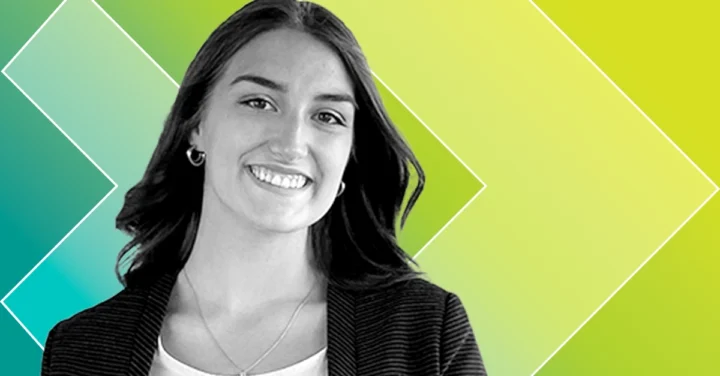
With Cassandra Phaneuf
Diversity and inclusion are crucial within the actuarial profession to push innovation and build community strength. Cassandra Phaneuf, an actuarial analyst in Montreal, embodies this through her journey as an Indigenous professional. Her career reflects a blend of academic training and practical experience with her involvement in several Indigenous business groups shaping her path.
In this Q&A, Cassandra shares learnings from her journey, including the challenges faced by Indigenous students in pursuing actuarial careers and actionable strategies for promoting Indigenous representation within the profession and workplace.
Can you tell us about how you became an actuarial analyst? What inspired you to pursue this career?
I decided to pursue a career in actuarial mathematics after a recommendation from my high school math teacher. I always did well in math and enjoyed problem solving, and I also had an interest in business thanks to my dad. Actuarial math felt like it would be a good fit based on the mix of technical aspects and general business sense needed to make decisions. I also liked that there are often leadership and management opportunities for actuaries.
I attended the University of Manitoba and worked toward a Bachelor of Commerce with a major in actuarial math instead of the typical Bachelor of Science. I really enjoyed my program since I could still explore my interest in business, and I think it prepared me for working in a corporate setting by giving me a solid foundation in the basics of business.
Can you share how your involvement with the University of Manitoba Indigenous Commerce Students (UMICS) has shaped your career as an actuarial analyst?
I was connected with UMICS on my first day of university, and it felt instantly like my little home on campus. I became especially involved with UMICS – which is the Indigenous student committee – and in my final year I took on the role of President. The goal of UMICS is to foster connections between the business community and Indigenous students and to spread awareness of the responsibilities that businesses have for reconciliation.
In my time as President, I gained a lot of business experience, building and tracking a budget, planning events for modest-sized groups (as well as one online conference for over 100 attendees), building relationships with companies in the local business communities, selling sponsorships for our events and lots and lots of networking. While working with UMICS, my main goal was to share the feeling of community among our student base and with our corporate partners.
All of these skills are easily transferable to my career now and I am still very grateful for the opportunity to gain experience and the strong community I had in university from UMICS.
In your experience, what are some of the main challenges faced by Indigenous students pursuing careers in fields like actuarial science, and how can these challenges be addressed?
Something I learned through my time with UMICS is that there are many different Indigenous experiences and that not all Indigenous students will face the same barriers.
Indigenous students may be the first to attend post-secondary education in their family and/or may live in a remote community where they will need to leave their whole family behind to attend university. There are many challenges to post-secondary education already, and pursuing a career as an actuary requires lots of time to dedicate to studying exams, which can be very isolating.
It’s also quite expensive to register for actuarial exams and purchase study material. There are obviously many financial burdens, although these can be helped through scholarships, bursaries and study programs from an employer.
Additionally, it can be quite challenging to not see yourself being represented in the path you want to take, or to be the first in your family to do something. There are less people with that experience to give you advice and guide you through. Thankfully, I feel there is an increasing visibility of Indigenous role models, and I would love to see that continue.
As someone who has deeply engaged in community-building initiatives, how do you see the role of employers in supporting Indigenous talent and their sense of well-being in the workplace?
The Truth and Reconciliation Commission’s (TRC) Call to Action 92 speaks directly to the business community, and I recommend anyone in corporate work to read it.
Corporate structures are very different from traditional Indigenous leadership and community structures. That’s why I think flexibility is very important in supporting Indigenous talent. For example, allowing Indigenous employees to work from home enables them to visit their community more often, which is highly beneficial. Employers can show understanding of the importance of extended families and close-knit communities by offering personal leave for grieving or family care needs beyond immediate family. Recognizing the significance of community to Indigenous professionals is key to overcoming some of our workplace barriers.
Employers should also strive to create a safe space for Indigenous talent to express challenges they are facing and listen to what they are saying. Some ways of doing this include cultural sensitivity training for all staff and ensuring policies support, rather than restrict, Indigenous employees. Regular check-ins allow for confidential discussions on experiences and career aspirations, and anonymous feedback mechanisms can empower Indigenous employees to share concerns without fear of reprisal. These ideas can help in fostering an environment where Indigenous voices are actively heard and validated.
What advice would you give to Indigenous students aspiring to pursue careers in fields where Indigenous persons have not traditionally had a significant presence?
My advice would be to ask for mentorship when you’re a student, as people are very willing to lend you their time and answer questions. If you see someone who has a career or skill that you admire, reach out and ask if you can interview them. It’s a great way to build a network and get information and advice that could help you. It takes courage to ask, but it’s definitely worth it!
How do you envision the future of Indigenous inclusion within the actuarial profession, and what steps do you believe are necessary to create more equitable opportunities for this underrepresented group?
I think the steps in Call to Action 92 are great guidelines.
Going forward, I expect we will see a big focus on education. It’s important to educate ourselves on the history of Indigenous Peoples and the current situation in Canada. There are a lot of great, free resources online, and I think educating everyone in the workplace creates a more understanding and equitable work environment.
I would also like to see more effort toward the point of equitable access to jobs and education. Flexibility in working conditions and communication would also be helpful.
Creating a safe space for employees to share their concerns, ensuring those concerns are genuinely being addressed and involving employees in building solutions (where possible) is also very important to creating a desirable workplace for everyone.
Are there any initiatives or projects that you are currently involved in (or know of) that aim to support Indigenous representation and inclusion within the actuarial community?
Several companies, including my employer, have engaged with a comprehensive training program for all employees on the history of Indigenous Peoples and Canada, such as the Reconciliation Education program. This is a great initiative; it works toward TRC’s Call to Action 92 and brings awareness to many people about the complexities of Indigenous history in Canada and the challenges Indigenous people face today.
For actuarial students, the Actuarial Foundation of Canada has several bursaries and scholarships with the Equality of Opportunity Scholarship being focused on diversity. The CIA and the Actuarial Students’ National Association also have several diversity, equity and inclusion scholarships, with one being designed specifically for Indigenous students pursuing actuarial studies.
There is also a diversity exam reimbursement program through the Casualty Actuarial Society and Society of Actuaries, which is a good resource.
Looking ahead, what are your aspirations for the future of your career, and do you plan to continue advocating for diversity and inclusivity within your field?
My aspirations are to continue enjoying the work I do, achieve my FCAS and FCIA designations, and work toward management/leadership as part of my career.
I do intend to continue advocating for diversity and inclusivity – it is something I’m very passionate about. I also strongly believe that this is a pivotal moment in the business community, with companies increasingly willing to enhance their efforts in this area and improve.
Cassandra Phaneuf is a Red River Métis and First Nations young professional working toward her actuarial designation. She graduated in January 2022 from the University of Manitoba with a Bachelor of Commerce degree majoring in Actuarial Mathematics and was part of the second cohort of the President’s Student Leadership Program. She has since moved to Montreal and has been working full-time at Intact Insurance in the Corporate Actuarial team as an Actuarial Analyst.
This article reflects the opinion of the author and does not represent an official statement of the CIA.






I would like to contact Cassandra Phaneuf about her interview but she is not in the actuarial directory. Could you assist me with connecting with her? Thanks Alan